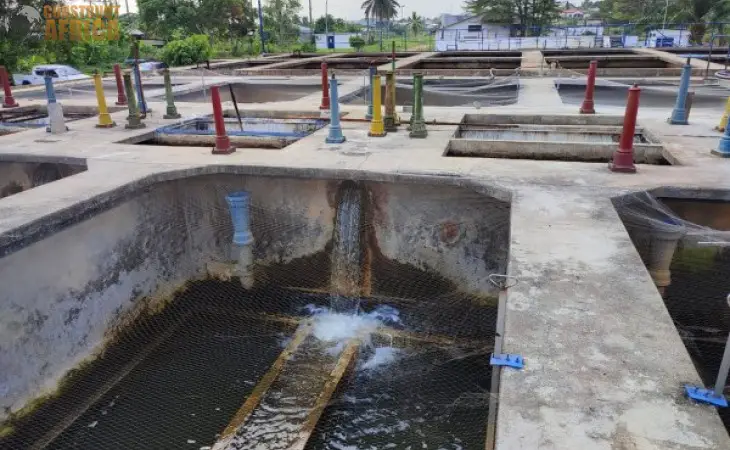Cameroon Water Utilities corporation (Camwater) has signed two partnership agreements for the construction Douala drinking water distribution network project in Cameroon. The agreements, which were signed on July 6 with the companies Besix from Belgium and Ersa Construction from Turkey, call for the execution of a drinking water supply project in the city of Douala and its environs using the Wouri River. They also call for the extension of the Japoma treatment station, which will supply 68,000 m3/day from the Dibamba River.
Although there is an abundant supply of water in the city, accessibility is a problem. This is due to the physical and technological constraints, the cost of water, pipeline leaks, and insufficient government action. As a result, the populace turns to collecting water from wells, boreholes, and springs. All of which have the potential to be contaminated and spread numerous waterborne diseases.
Also Read: The fishing component of the Nachtigal Hydropower project in Cameroon set for implementation
Capacity of the Douala water distribution network in Cameroon
The project aims to supply 400,000 m3 per day of potable water. Douala had a total population of 3.4 million as of 2021 and an installed potable water production capacity of 303,400 m3/d.
President Paul Biya emphasized the significance of making certain that the nation has access to enough drinking water supplies in his new year’s message in 2023.
He said, “One of my top concerns is ensuring that our population has access to clean drinking water. Therefore I’ve asked the administration to expeditiously complete the necessary paperwork so that the megaproject. To provide drinking water to the city of Douala and its surroundings may begin in 2023.”
Camwater is currently looking for funding from the World Bank for a number of its projects. Including the financing of specialized networks to supply production plants and the funding of Camwater’s plans for energy autonomy. Which will help it increase its capacity for producing water and save money by valuing and maximizing non-fossil resources. On July 4, the director-general of the company, Blaise Moussa, met with a group from the bank to discuss Camwater’s five-year priority investment program 2023–27. Which intends to assist the nation in achieving the Sustainable Development Goals of the UN.

